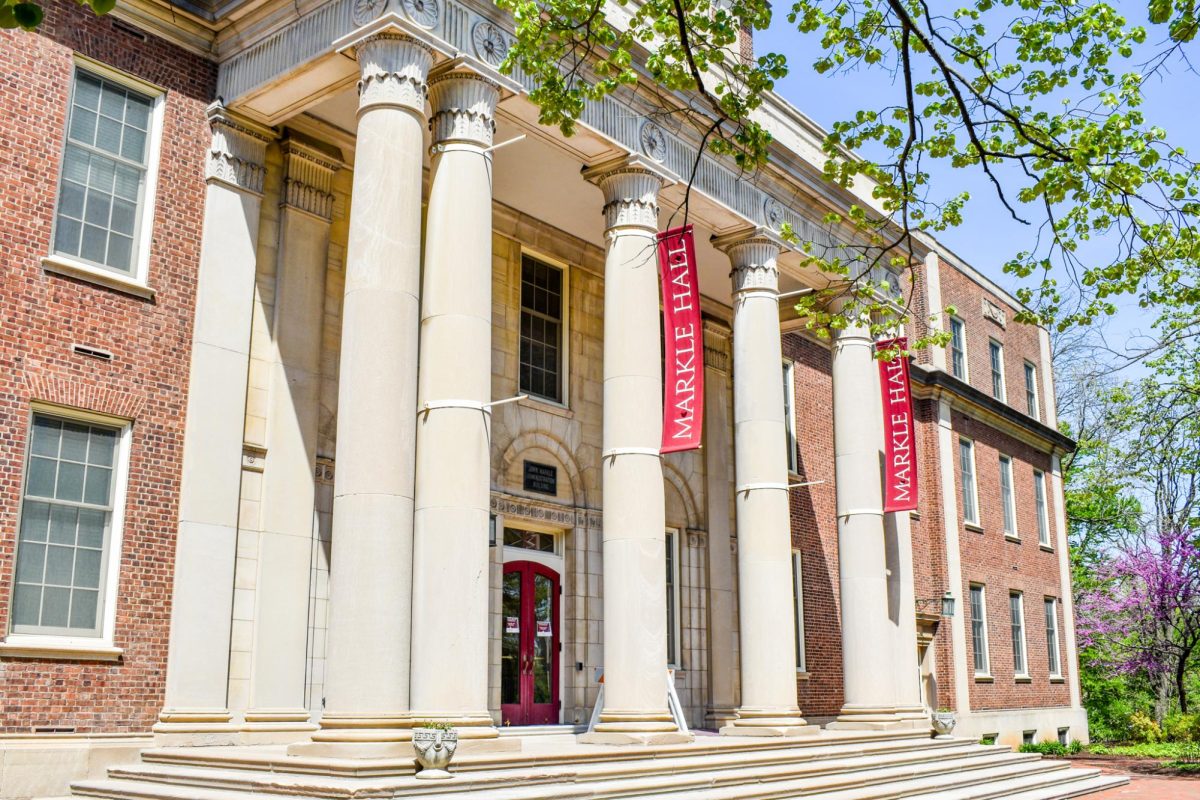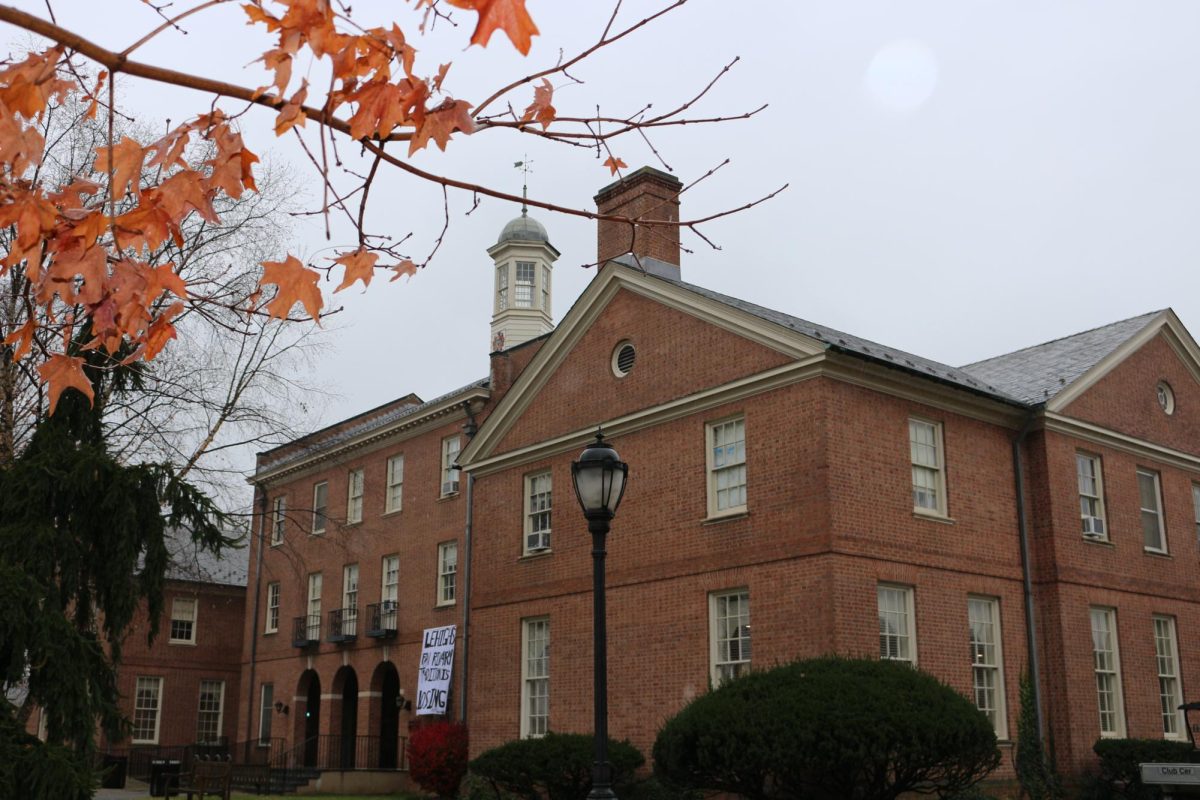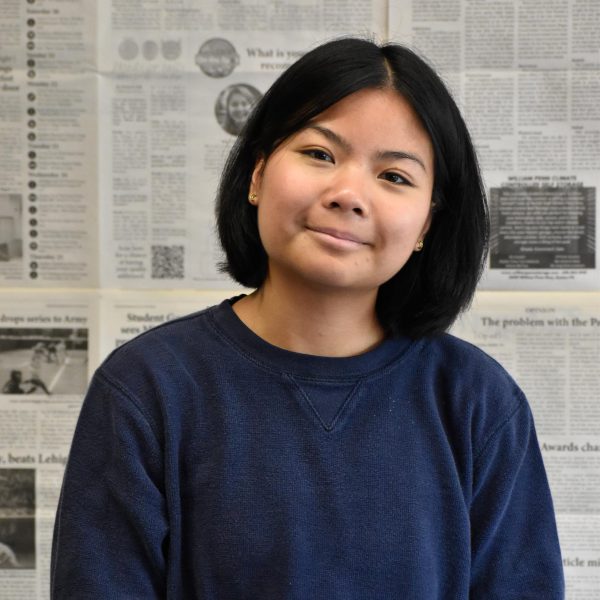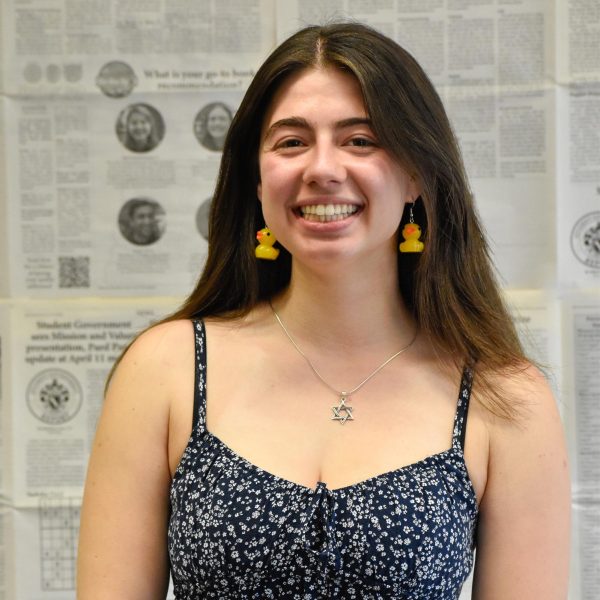Lovers of quantum science and curious newcomers gathered at Lafayette College’s “Quantum Unlocked: Qiskit Fall Fest” event last weekend — uniting students from various disciplines including chemistry, physics, neuroscience and engineering.
Named after a quantum computing software, the two-day event featured a panel discussion with a diverse group of quantum information experts, an engaging student workshop and a live stage reading of the play “Copenhagen.”
Sponsored by International Business Machines, the event dove into the realm of quantum information science, a field in which the applications of quantum properties of light and matter are studied. The event was also sponsored by the Office of the Provost, IEEE, Lafayette Data Community, the Dyer Center, NSBE, the physics department and the chemistry department.
“It was really great to see everybody come together and make this event a success,” said Heidi Hendrickson, an assistant professor of chemistry and event organizer.
“It was totally student-driven,” she continued, thanking her lab students Kusum Subedi ‘26, Padmanabh Kaushik ‘25 and Swetha Tadisina ‘25 for planning the event. “I was just there to support them.”
The event kicked off last Friday afternoon with a discussion panel featuring experts in a range of professions. Students heard from a Massachusetts Institute of Technology scientist, a quantum technology podcast series host and a TEDx speaker, getting a glimpse into the academic and industrial world of quantum information science.
“It was a little bit of a career panel, but it was also a little bit of what different aspects of quantum technology there are,” Hendrickson said.
Subedi, who moderated the event, said her questions aimed to ensure people of all intellectual backgrounds and diverse disciplines would be able to learn from the panelists. Her favorite part of the discussion was reflecting on how far quantum information science has come in the last two decades.
“A lot of people are like, ‘Oh, it’s just a new technology and we don’t know a lot,’ but these are the people who started, like 20 years ago, when I wasn’t even born,” Subedi said. “They didn’t just believe in it, but then they worked on it and created something very tangible.”
Late Friday evening, students from Hendrickson’s lab and a few additional performers presented a 2.5-hour live stage reading of the play “Copenhagen” by Michael Frayn to an audience of around 30.
According to Hendrickson, the play centers on the story of Niels Bohr, Werner Heisenberg and the atomic bomb.
“It’s about the ethical implications and the role of scientists in the ways that the technology they developed can be used,” Hendrickson said, adding that the stage-reading was another attempt to make the event more inclusive across all disciplines.
“I guess that’s part of the Lafayette liberal arts education,” Kaushik said. “Panelists were telling me, ‘Oh, we had never seen Qiskit Fall Fest where somebody did a play.’ I think that’s very cool.”
The event’s last day gave students a hands-on opportunity at quantum computing.
Yale University PhD students Delmar Azevedo Cabral and Tingting Xu led a five-hour workshop exploring the ins and outs of Qiskit.
“The key point is ‘Quantum is here,’ and ‘What can it be used for?’” Cabral said of the workshop. “In this case, they can get the fundamental concepts: entanglement, correlation, superposition, measurement.”
Both Cabral and Xu agreed that making the workshop as accessible as possible was a common goal for both them and Hendrickson’s lab students.
“People come from so many different backgrounds and we also have freshmen in the workshop,” Kaushik said. “We tried to use the simplest architecture, like the simplest syntaxes of code.”
Reflecting on the event, Hendrickson and her students hope those in attendance gained a new perspective on how quantum technology can be applied to their everyday lives and future careers.
“We want to be able to give students a way to access quantum mechanics and feel comfortable with the ideas, even if they’re a little bit strange,” Hendrickson said. “Who knows who’s going to be the person who figures out the best way to sort of conceptualize these ideas, or intuit these ideas?”
























































































































